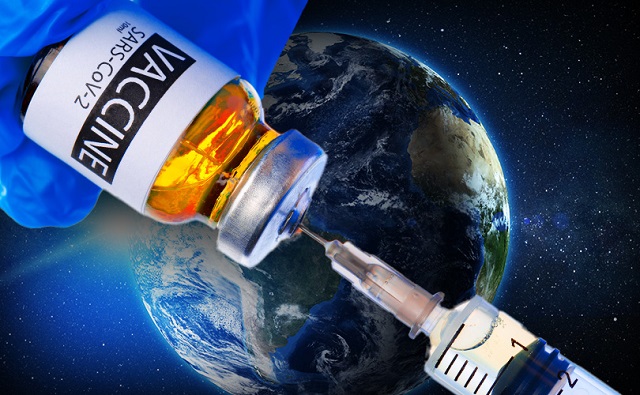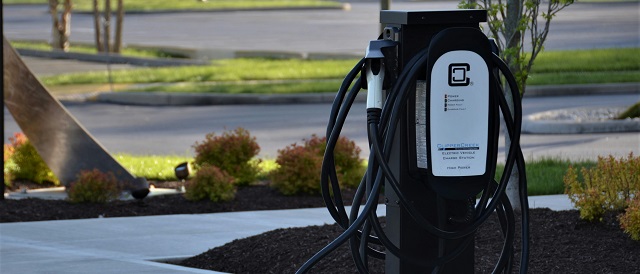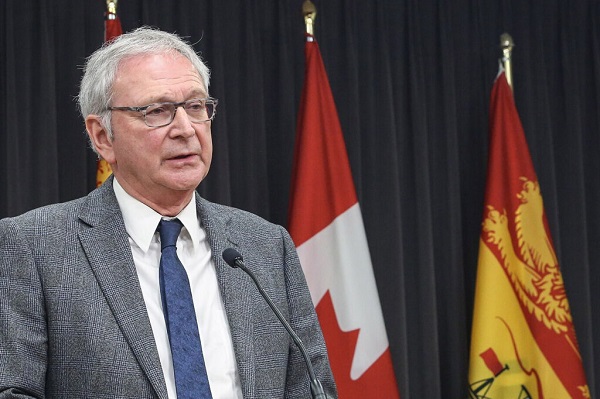Uncategorized
May: UK to seek further Brexit delay, try to break logjam

LONDON — With Britain racing toward a chaotic exit from the European Union within days, Prime Minister Theresa May veered away from the cliff-edge Tuesday, saying Britain would seek a further delay to Brexit as its politicians sought a compromise solution to the crisis.
May made the announcement after the EU’s chief negotiator warned that a disruptive and costly Brexit was likely unless Britain broke the impasse that has paralyzed the government and Parliament.
After almost three years of refusal to bend in her insistence that Britain embrace her vision of Brexit, May said the country needed “national unity to deliver the national interest.”
Following the defeat of the government’s plan and a range of lawmaker-written alternatives, May said Britain would need a further delay to its EU departure, currently scheduled for April 12. And she offered to hold talks with opposition Labour Party leader Jeremy Corbyn in an attempt to find a compromise solution.
“This debate, this division, cannot drag on much longer,” May said in a televised statement from 10 Downing St. that acknowledged her attempts to win backing for the government’s version of Brexit had failed.
European Council President Donald Tusk gave a cautious welcome to May’s change of course.
“Even if, after today, we don’t know what the end result will be, let us be patient,” he tweeted — a suggestion the EU would wait for Britain to present a clear plan.
Earlier, EU negotiator Michel Barnier offered a downbeat assessment of the situation.
“As things stand now, the no-deal option looks likely. I have to tell you the truth,” Barnier said in Brussels.
Barnier said “we can still hope to avoid it” if the intensive work in London produces a breakthrough before an April 10 EU summit.
The leaders of the EU’s 27 remaining countries have given the U.K. until April 12 to leave the bloc or to come up with a new plan, after lawmakers thrice rejected an agreement struck between the bloc and May late last year.
The House of Commons has also failed to find a majority for any alternative plan in two days of voting on multiple options.
May’s statement came after a seven-hour meeting of her Cabinet, which is split between supporters of a “soft Brexit” that keeps close economic ties with the EU, and Brexiteers who believe a no-deal exit is better than compromising.
Her words seemed to indicate that she was veering away from the possibility of a no-deal Brexit — but also that she has not given up on her own withdrawal agreement, which has been rejected by Parliament three times.
Her plan is to seek approval for the legally binding agreement — which sets out the terms of Britain’s departure and triggers a long transition period for the two sides to work out future relations — after securing cross-party political support for a vision of those future ties between the U.K. and the EU.
If she and Corbyn fail to reach agreement, May said Parliament would get to vote on a range of options — and the government would be bound by the result. It is the first time she has committed to following the instruction of lawmakers.
May said she hoped Britain could pass the agreement by May 22, in time to avoid participating in elections for the European Parliament.
A no-deal Brexit would jeopardize trade and travel, with new checks on borders and new regulations on dealings between the EU and Britain.
Barnier said the EU was prepared, but “being prepared for no deal does not mean that there will be no disruption.”
Businesses have warned that the economic impact in Britain could be devastating.
Ford of Europe Chairman Steven Armstrong said “a no-deal Brexit would be a disaster for the automotive industry in the U.K.”
Armstrong that if the U.K. can’t work out a deal on leaving the EU that guarantees “frictionless trade,” the vehicle maker “will have to consider seriously the long-term future of our investments in the country.”
Edwin Morgan, interim director general of business group the Institute of Directors, said May’s statement was “a welcome step towards compromise,” though their remained obstacles ahead.
“We urge the leader of the opposition to work with the prime minister to find a solution,” he said. “Both sides must play ball.”
Britain’s political paralysis — and May’s failure to get Parliament’s approval for the withdrawal agreement she negotiated — have exasperated EU leaders.
French President Emmanuel Macron said that if Britain’s politicians could not agree on a way forward, “they will de facto have chosen for themselves to leave without a deal.”
“We cannot avoid failure for them,” Macron said before a meeting in Paris with Irish Prime Minister Leo Varadkar.
But Varadkar stressed “there’s still time” for May to come to the April 10 summit with “credible” proposals.
British lawmakers intent on avoiding a no-deal Brexit have drawn up plans to prevent Britain crashing out of the bloc, by accident or design.
“We are now in a really dangerous situation with a serious and growing risk of no deal,” Labour Party legislator Yvette Cooper said.
Cooper introduced legislation, which Parliament is set to consider, this week, that would compel May to seek to extend the Brexit process beyond April 12 in order to prevent a no-deal departure.
___
Casert reported from Brussels. Mike Corder in Halfweg, Netherlands, contributed to this story.
___
Follow AP’s full coverage of Brexit at: https://www.apnews.com/Brexit
Jill Lawless, Raf Casert And Danica Kirka, The Associated Press
Uncategorized
RCMP recruitment failure has Alberta advocacy group calling for Provincial Police Service

News release from Free Alberta Strategy (A Strong And Sovereign Alberta Within Canada)
“Make no mistake, we are paying for these services that we aren’t receiving. Alberta’s taxpayers are paying tens of millions of dollars for nearly 400 vacant RCMP officer positions – for boots that are not on the ground.”
A recent report from the Royal Canadian Mounted Police (RCMP)’s independent Management Advisory Board had findings that are nothing short of alarming:
“Federal policing has now arrived at a critical juncture of its sustainability, which present risks for the national security and safety of Canada, its people, and its interests,” says the report.
After over a year of diligent study, the Board has been tirelessly firing off flares, signalling to all who will listen: the very foundation of our national public safety apparatus may be at risk of faltering.
This is doubly problematic because, as you well know, the RCMP is also responsible for boots-on-the-ground policing in large parts of the country, including many rural and remote areas – including in Alberta.
Rural crime has been a longstanding issue in Alberta, and social disorder continues to make headlines nightly.
Alberta Minister of Public Safety, Mike Ellis, took to social media platform X (formerly known as Twitter) to express his opinion:
“The independent report finds the RCMP has struggled in recent years to recruit and retain regular members, a problem that’s particularly acute in federal policing. This is not about the hard-working men and women on the frontline: they are doing everything they can. The reality is the RCMP do not have enough officers to police communities in Canada effectively.”
Ellis has been ahead of this story for months now.
In March, Ellis stated that:
“… on average, Alberta has an RCMP officer vacancy rate of 20 per cent. This means that Alberta is only being served by 1,522 of the 1,911 RCMP officers that the federal government has authorized for Alberta.”
“Make no mistake, we are paying for these services that we aren’t receiving. Alberta’s taxpayers are paying tens of millions of dollars for nearly 400 vacant RCMP officer positions – for boots that are not on the ground.”
The consequences of this capacity crisis are far-reaching.
Not only does it jeopardize the safety of Albertans, but it also undermines the credibility of Canada’s federal police force on the international stage.
With limited resources and personnel, the RCMP’s ability to address pressing national and global security concerns is severely compromised.
The Management Advisory Board, created in 2019 by the federal government to provide external advice to the RCMP commissioner, set up a task force in the fall of 2022 to study the federal policing program.
Overall, the report says budget and personnel shortfalls have left the RCMP “operationally limited,” restricting the number of cases it can take on annually.
Here are some more highlights from the report:
“Canada and its people have already begun to see the repercussions of the federal policing program being stretched thin.”
“Federal policing’s overall eroding capacity may have implications for the credibility of Canada’s federal police force and its investigations on the international stage.”
“Ultimately, this may influence Canada’s overall approach and standing in international politics, including its ability to advance global priorities.”
Clearly, we cannot afford to wait any longer.
Municipalities can ease the burden on our national security services by establishing municipal policing.
Several cities in Alberta already have their own police authorities, and the provincial government is providing funding for others interested in exploring this option.
Grande Prairie is already in the process of establishing their own municipal police service.
No word on how many other municipalities have taken the government up on their offer.
Unfortunately, President of Alberta Municipalities Tyler Gandam (also Mayor of Wetaskiwin) is featured prominently on the National Police Federation’s “Keep Alberta RCMP” website.
Interestingly, the Keep Alberta RCMP website doesn’t mention the fact that the advisory board even exists.
It doesn’t mention the report.
The notion that our federal policing infrastructure teeters on the brink of instability while Gandam appears to be asleep at the wheel, is deeply disconcerting.
The safety and security of Albertans must remain our top priority.
We cannot afford to wait any longer.
The time has come for the province to take swift and decisive measures to bolster policing capabilities in Alberta.
It’s time for Alberta to seriously consider the establishment of an Alberta Provincial Police Service.
It has been one of the core tenets of the Free Alberta Strategy.
If you agree, please reach out to your municipality and ask them to take steps to protect your community.
Together, we can keep Alberta safe.
Regards,
The Free Alberta Strategy Team
P.S. We’re hoping you’ll consider contributing to our cause. Your generous donation helps us make a positive impact in our community. No need to worry about any hold-ups or threats here. We’re just passionate about making a difference, and your support goes a long way in helping us achieve our goals.
Uncategorized
Making Alberta a geothermal energy leader

Eavor announces it’s the #1 geothermal energy startup company in the world – January 2024
Alberta is creating Canada’s first geothermal test site to advance drilling innovation, reduce emissions and create jobs.
Geothermal energy uses naturally occurring heat within the earth to heat water and buildings and generate power, with few emissions or environmental impacts. Alberta has vast pockets of heat below ground, making the province Canada’s geothermal leader, but testing and developing new technologies can be a barrier for many companies. Unlike the United States, Japan and other countries, Canada does not currently have an open-access test site to help spur innovation.
Alberta is taking the first steps to create a new Alberta Drilling Accelerator. This groundbreaking facility would be the first of its kind in Canada, establishing Alberta as a global hub for geothermal technology. This will drive new innovations in geothermal and other clean energy projects that can reduce emissions and power communities around the world.
To kick-start the project, the Alberta government is investing $750,000 to conduct a feasibility study led by Calgary-based Eavor Technologies and other stakeholders. The study is the first step in assessing the proposed facility. It will include identifying a site, business planning, research on the governance model, an economic impact analysis and stakeholder engagement that will lay the groundwork for the initial planning stages of the project.
“Alberta has been a global energy leader for more than a century, renowned for our skilled workforce, innovation and one of the largest oil and gas reserves on the planet. The proposed Alberta Drilling Accelerator presents enormous potential to help our province lead the next wave of energy projects here at home and around the world that reduce emissions, create jobs and enhance energy security.”
The Alberta Drilling Accelerator would help companies test out and develop new geothermal drilling techniques or technologies to reduce emissions and drive growth across the clean energy sector. It would be an open-access, technology-agnostic drilling test facility capable of drilling in challenging environments, including deep depths, high temperatures and different rock types.
The accelerator also would help speed up the development of carbon capture, utilization and storage; helium; critical minerals; and other clean technologies and commodities that rely on Alberta’s drilling sector. All of this helps attract investment and bring new technologies to scale in Canada.
“With cumulative geothermal investment poised to reach $1 trillion by 2050, a geothermal arms race is very much underway to commercialize novel drilling techniques that accelerate geothermal development – exhibited by testing facilities in the United States, China and Iceland. As Canada’s first geothermal test bed, the Alberta Drilling Accelerator will help bring geothermal technologies to scale, supporting companies like Eavor. We commend the Government of Alberta for this bold initiative.”
“We are proud to witness Eavor, a CDL-Rockies alumni company, create new opportunities for innovators like themselves to advance the adoption of energy transition technologies like geothermal. The Alberta Drilling Accelerator will further solidify Alberta’s position as a leader in the global sustainable energy landscape.”
If the feasibility study shows the facility is economically and environmentally viable, and if the project is approved by the Alberta government, the facility will start taking shape at the selected site and drilling could start as early as 2025.
“Canada is home to the most advanced drilling technology in the world. Not only do our members support the responsible development of oil and gas, but we are integral in the extraction of new energy resources like geothermal and critical minerals. Our workers are at the epicentre of Canada’s energy transformation. Our people, technology and processes are leading the way towards a more diverse energy future. The Alberta Drilling Accelerator is a government-enabled policy approach to expand Alberta’s drilling capacity and reach its full potential as the world’s most diverse and technologically advanced producer and exporter of sustainable energy and critical minerals.”
“The Alberta Drilling Accelerator is a testament to Alberta’s innovative and entrepreneurial spirit. Leveraging our oil and gas sector expertise, Alberta is poised to become the global leader in developing new geothermal technologies that will play an integral role in reducing emissions while supporting job creation.”
Quick facts
- The Canadian Association of Energy Contractors estimates that one active drilling rig, whether drilling for natural gas or geothermal, creates approximately 220 direct and indirect jobs and
$1 million in tax revenue. - In 2019, Eavor received $2 million in provincial funding through Emissions Reduction Alberta and Alberta Innovates for the world’s first closed-loop geothermal system.
Related information
-

 Brownstone Institute2 days ago
Brownstone Institute2 days agoMedical Elites’ Disgrace Over Ivermectin
-
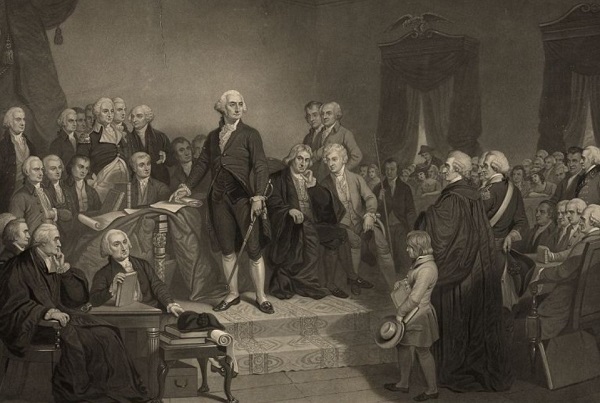
 Opinion2 days ago
Opinion2 days agoThe American Experiment Has Gone Down In Flames
-

 conflict1 day ago
conflict1 day ago‘It Makes No Sense’: Experts Puzzled By Biden Admin’s Claim That Rafah Invasion Wouldn’t Help Israel Defeat Hamas
-

 COVID-191 day ago
COVID-191 day agoThe New York Times Admits Injuries from COVID-19 Shots
-

 Bruce Dowbiggin1 day ago
Bruce Dowbiggin1 day agoWhy Do The Same Few Always Get The Best Sports Scoops?
-
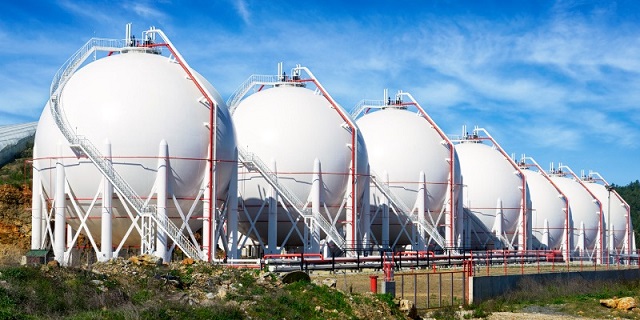
 Energy1 day ago
Energy1 day agoFederal government continues to reject golden opportunities to export LNG
-

 Energy1 day ago
Energy1 day agoBuckle Up for Summer Blackouts: Wind Is Already Failing Texas in Spring
-

 Opinion18 hours ago
Opinion18 hours agoCanada’s fertility, marriage rates plummet to record lows: report



